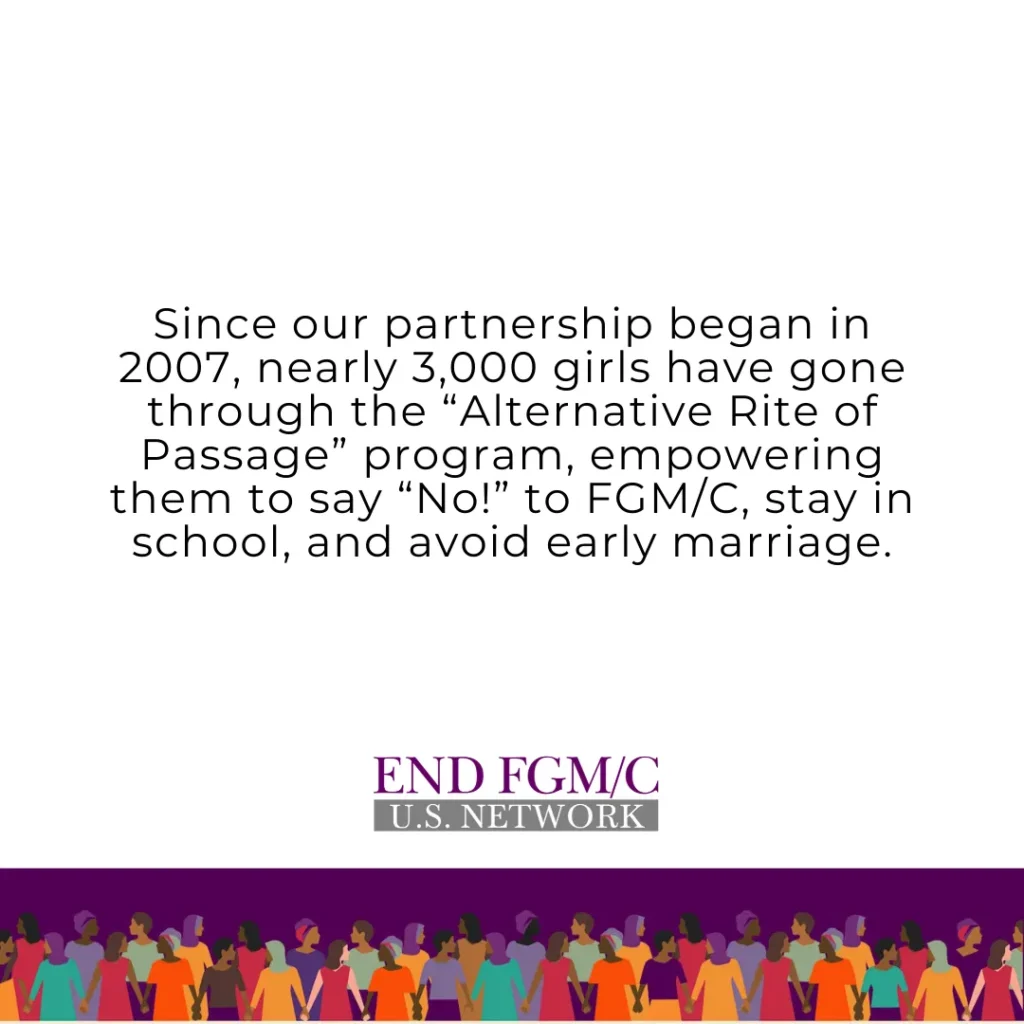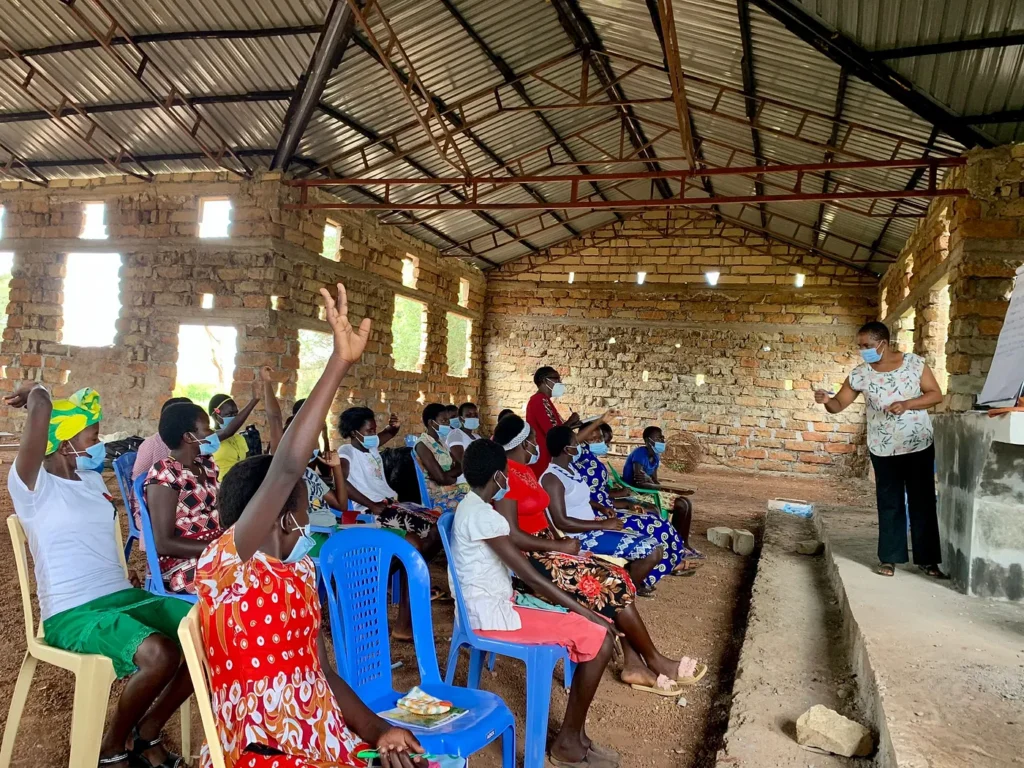Member Highlight: Women’s Global Education Project
Posted: October 19. 2021
Learn about how Women’s Global Education Project is working in communities in Kenya and Senegal to celebrate girls transition to adulthood without female genital mutilation/cutting (FGM/C).
Tell us about you/your organization.
Women’s Global Education Project (WGEP) is a women-led, Chicago-area NGO working in close collaboration with grassroots community partners to educate and empower women and girls in rural regions of Senegal and Kenya. We work to dismantle the complex economic, social, and cultural barriers that keep adolescent girls from attending and succeeding in school. In rural Kenya, FGM/C is one in six major factors that cause girls to drop out of school early: additional factors include early marriage and pregnancy, poverty, poor health education and resources for menstrual health, undervaluing of girls’ abilities and potential, and familial expectations for girls to help with household chores and farming.

How is your organization working to end female genital mutilation?
Together with our partner, Tharaka Women’s Welfare Program (TWWP), we work to lower the incidence of FGM/C in Tharaka-Nithi county, Kenya. In this region, as many as 71% of women and girls ages 15–49 have undergone some form of FGM/C. FGM/C is traditionally seen as a rite of passage into adulthood, rendering girls as young as 12 susceptible to early marriage and dropping out of school. TWWP’s Director, Aniceta Kiriga, founded the organization to provide a community-based alternative to FGM/C, to celebrate girls’ adolescence without the harmful practice. Since our partnership began in 2007, nearly 3,000 girls have gone through the “Alternative Rite of Passage” (ARP) program, empowering them to say “No!” to FGM/C, stay in school, and avoid early marriage. ARP is a week-long event full of educational workshops, empowerment and leadership activities that culminates in a final, graduation ceremony that involves the entire community! Girls in the ARP retreat program take part in empowerment workshops with their mothers and other female role models and mentors. In these workshops, girls learn about the harmful effects of genital cutting, the importance of staying in school, healthy relationships, and confidence building.

What are the challenges and opportunities in trying to end female genital mutilation?
Though FGM/C has been illegal in Kenya since the 2001 Children’s Act, there is still cultural support for the practice that needs to be changed through long-term, community mobilization activities! The ARP program is successful because WGEP and TWWP employ team members who live and work in the communities that we serve, and have worked for the past decade to become trusted leaders in Tharaka-Nithi county. We incorporate key stakeholders into our programming, including parents, students, teachers, school officials and village leaders to change attitudes towards girls’ education and gender equality. We are happy to report that the ARP program has become so popular that residents now come to WGEP and TWWP to request that their daughters be included in the program!
How is the network helping you to achieve these goals and why is it important to be in the network?
We are proud to be members of the U.S. End FGM/C Network to stay up-to-date on advocacy efforts within the U.S. Congress, and to connect with other organizations with similar goals!
We can end female genital mutilation in the United States because women’s bodily autonomy is essential to gender equality, and society’s advancement!
Follow Women’s Global Education Project on Twitter, Instagram, Facebook and LinkedIn.
